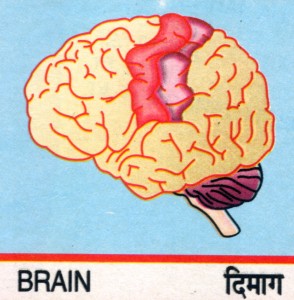Yes I do! Most indie filmmakers I talk to complain about distributors and “middlemen,” but they’re missing the real problem. Middlemen – publishers, distributors, resellers – can do excellent work. The problem is not middlemen; it’s monopolies.
So many middlemen insist on monopolies, we’ve forgotten we don’t need to grant them. They say that without a monopoly (aka “exclusive rights”) they have no incentive to promote and distribute. Actually a monopoly gives a middleman no incentive, because no one is competing with them. Take away the monopoly, and the middleman has to compete with other potential middlemen (including the artist). Then they have an incentive to work. Rather than monopoly, they succeed on the basis of expertise (theatrical distributors already know how to track, ship, and manage prints), innovation (finding better ways to meet customers’ existing desires and identifying new ones), and quality.
I’m very happy with the middlemen I work with. FilmKaravan, who distributes Sita Sings the Blues on DVD, promoted and placed DVDs in outlets and markets I was too lazy to reach. (They out-competed me, which is great!) GKids, who distributes the film theatrically East of the Mississippi, manages the prints professionally, finds great new venues for it, and promotes it cleverly without overspending. These middlemen do their jobs very well, and I’m grateful for the services and value they add to the film. They have my non-exclusive Endorsement.
I’m only unhappy with one middleman, an overseas distributor who uses their monopoly to block access to the film rather than facilitate it. For example, a professional conference held by their country’s national television company, and attended by important players in the film industry there, sought a one-time conference screening of Sita, but the distributor refused to lend the local print. Lending it would have helped the film tremendously, but the distributor was focused on immediate money instead of on the long-term good of the film. Because I had foolishly granted this distributor an “exclusive endorsement” in their territory, there was no one else in a position to lend a print. (What distributor would take up a film knowing that the filmmakers’ imprimatur had already been granted to a competitor?)
My endorsement wasn’t a mistake. I want that distributor to make money, and lots of it. But endorsing exclusively was a mistake: although not as bad as copyright, it’s still a kind of monopoly, and monopolies invite abuse. That is their nature. I now know that to get good work from a middleman, I can’t grant them a monopoly. They need to feel that if they let an opportunity slip by, another middleman may jump at it. Business competition improves business performance; some say it’s an essential incentive.
Middlemen will only have monopolies if artists keep granting them. They’re not going to give them up on their own. It falls on us artists to simply refuse to grant these monopolies in the first place. A copyleft license sends a clear, simple, and non-negotiable message to middlemen that they need to innovate and compete to profit from the work. Only we artists can supply the incentives they need to do their jobs well; and we can only do that by refusing monopolies.
A middleman without a monopoly is a great help to art and artists. Rather than abusing monopolies, they provide valuable services. The better they are at providing services, the more successful they become. Competition keeps middlemen on their toes, and eliminates the lazy and incompetent. Monopoly does the opposite.
In sum, the problem isn’t middlemen, it’s monopolies. Yay for middlemen! I <3 U.


